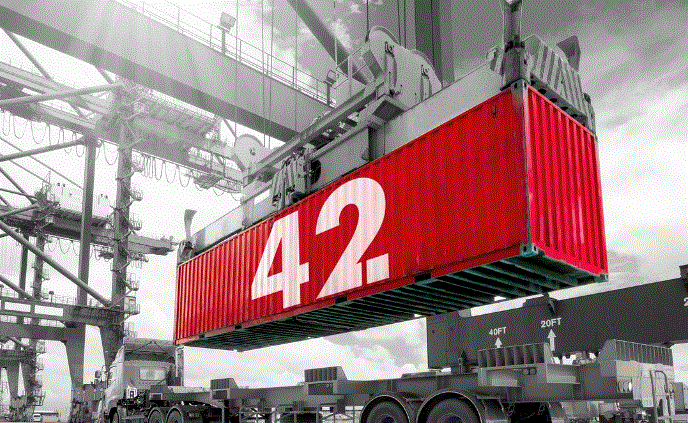The port of Rotterdam, one of the largest ports in Europe, has kicked off a project in which a smart container will be traveling around the world in a two-year data-collecting mission.
During this journey, the container – which houses an array of sensors and communications equipment – will be measuring changes in parameters like vibration, slope, position, sound, local air pollution, humidity and temperature. The unit has also been fitted with solar panels, which can be used to determine how much power a container can generate during a given journey by ship, train or truck.
The container, dubbed Container 42, will be making its first stop in early June, in Munich, Germany. In Munich, it will be presented to the public during the trade event Transport Logistic 2019 (TLM).
The port of Rotterdam said that the collected data will provide insight into the challenges faced during transport and logistics and contribute to the development of a so-called ‘digital twin’ for the port: a digital representation of the actual, physical port area. The foundations for the project are formed by the Port of Rotterdam Authority’s existing Internet of Things (IoT) platform. The Port Authority uses this cloud-based platform to collect and process data coming in from sensors installed throughout the port area.
This provides users with real-time information about the local infrastructure, water and air quality, among other things – allowing the port of Rotterdam to further improve its provision of services. The digitalization of Rotterdam’s port services will contribute to the even safer, swifter and more reliable forwarding of cargo, the port authority said. At some point in the future, it is expected to help enable Rotterdam to accommodate autonomous shipping in its port area.
Container 42 is a platform for intensive collaboration between the following parties: Port of Rotterdam Authority, IBM, Cisco, Esri, Axians, Intel, HyET Solar, Van Donge & de Roo, Awake.ai, Betta Batteries, Simwave, Advanced Mobility Services, Kalmar and Shipping Technology.
In 2018, the port of Rotterdam said it was working in a digital transformation project with IBM in order to become a smart port.
The Dutch port, which currently employs 90,000 people, was interested in exploring connected shipping. Connected ships operate autonomously and communicate with each other to avoid the risk of a collision. The Port of Rotterdam is currently working to host autonomous ships by 2025.
In order to get ready for this, the port in 2018 enhanced its 42-kilometer port area with IBM internet of things (IoT) technologies and IBM Cloud and began to implement IoT sensors, augmented intelligence (AI) and smart weather data. Accurate water and weather data allow shipping companies to predict the best time to enter the port of Rotterdam by identifying the most favorable conditions. That information is provided by Weather Company, a company owned by IBM.

